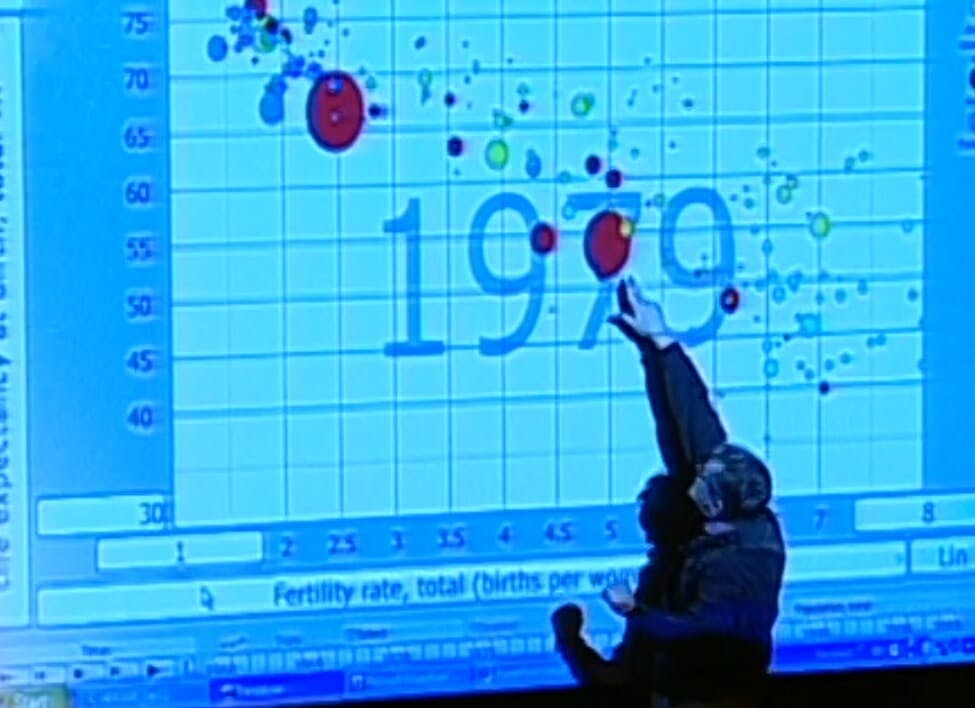The goal of a people analytics team should be to promote decisions informed by facts. Too often the goal seems to be to do sophisticated analytics for their own sake. How do we get the focus back on track?
Hans Rosling is something of a hero to analytics professionals for his stunning use of animated bubble charts. If ever someone says, “We must use data to tell a story,” well you won’t find a better practitioner of that than Dr. Rosling. You can see his approach on TEDtalks or on YouTube.
The impressive way he tells a story hides two elements that HR analytics needs to learn from:
- The core of his analysis is simply a chart of two factors (such as “life expectancy vs. fertility”) shown over a period of time (hence the animation). It looks great but the math is simple.
- The power of the finding is largely in that it corrects a naïve mistake (such as the idea that some country or region will always have high fertility) rather than an unexpected insight.
Rosling’s book Factful includes in its subtitle “Ten Reasons We’re Wrong About the World.” People analytics departments would do well to focus on “Ten Reasons Managers are Wrong About People Management” rather than looking for secrets embedded in big data.
Rosling identifies 10 cognitive weaknesses that lead people to be wrong about the world, these are:
- Gap – The tendency to think there are two kinds of things (e.g. “there are two kinds of people”) with a big gap between them.
- Negativity – We focus on negative news disguising the fact that the norm may be much better.
- Straight line – Humans often presume a trend will continue in a straight line.
- Fear – Things that scare us distort our perceptions (e.g. Fear of data privacy issues paralyses HR).
- Size – Anything can appear large or small if there is no point of comparison that also takes into account change over time.
- Destiny – We presume some things are inevitable (e.g. Amazon was bound to dominate online commerce) rather than recognizing the role of human agency and the many possible outcomes.
- Generalization – We over-generalize (e.g. “baby boomers aren’t tech savvy”).
- Single (nail) – When someone has a particular tool (like analytics) they want to apply it to every issue.
- Blame – Humans often approach problems by finding someone to blame rather than looking at the system dynamics that created the problem.
- Urgency –A false sense of urgency distorts our perspectives.
A people analytics functions that helps counter these cognitive errors by showing simple data (as Rosling does) will go along way to helping their organization make better decisions.
